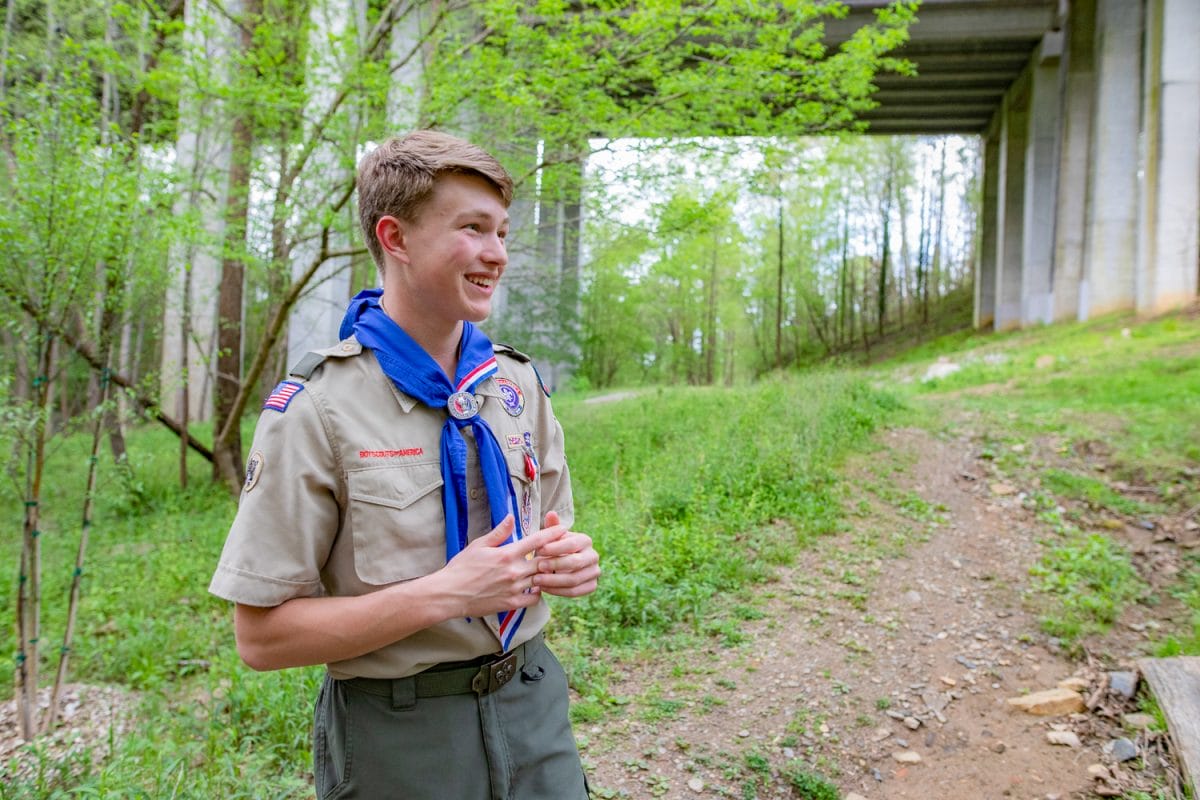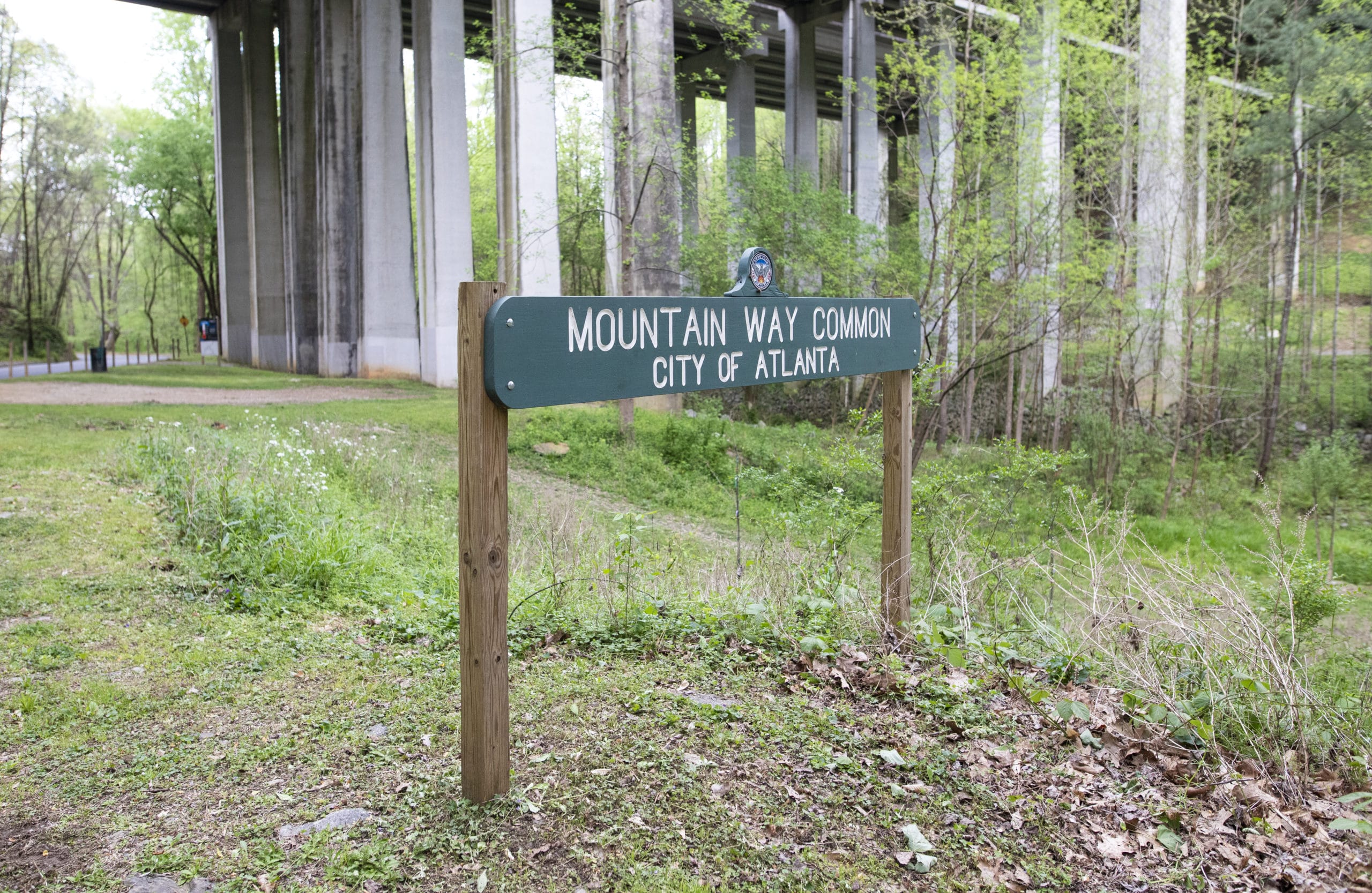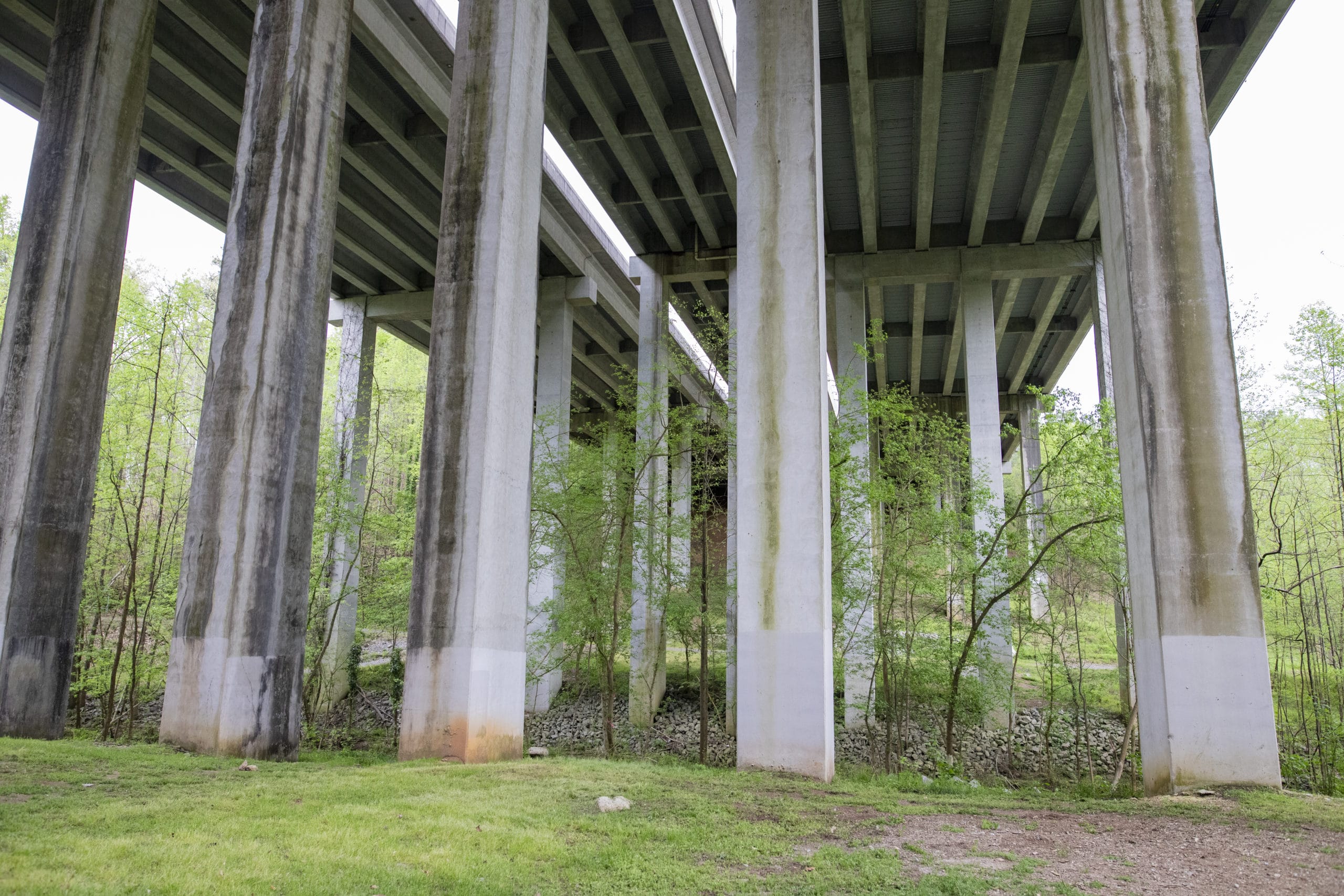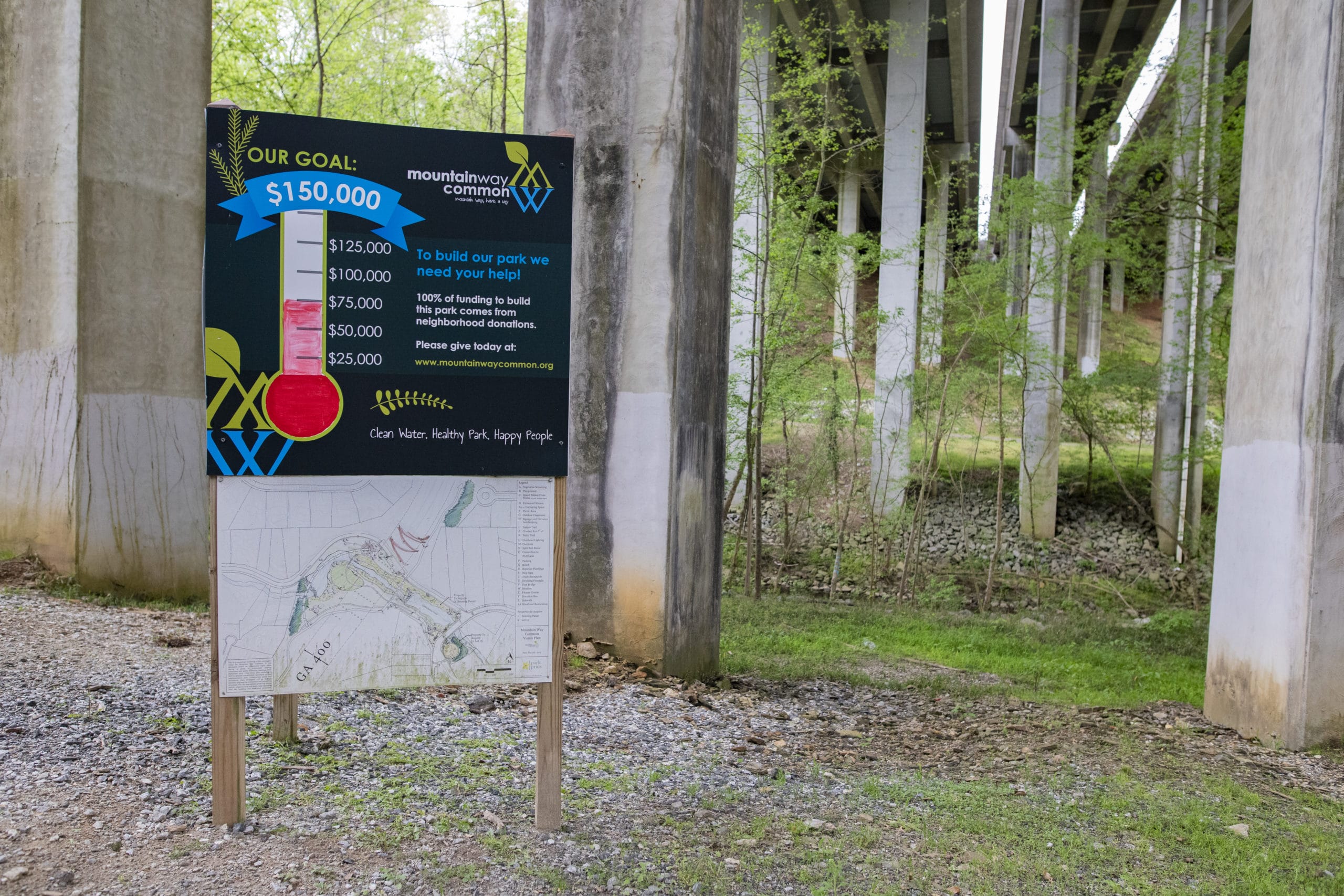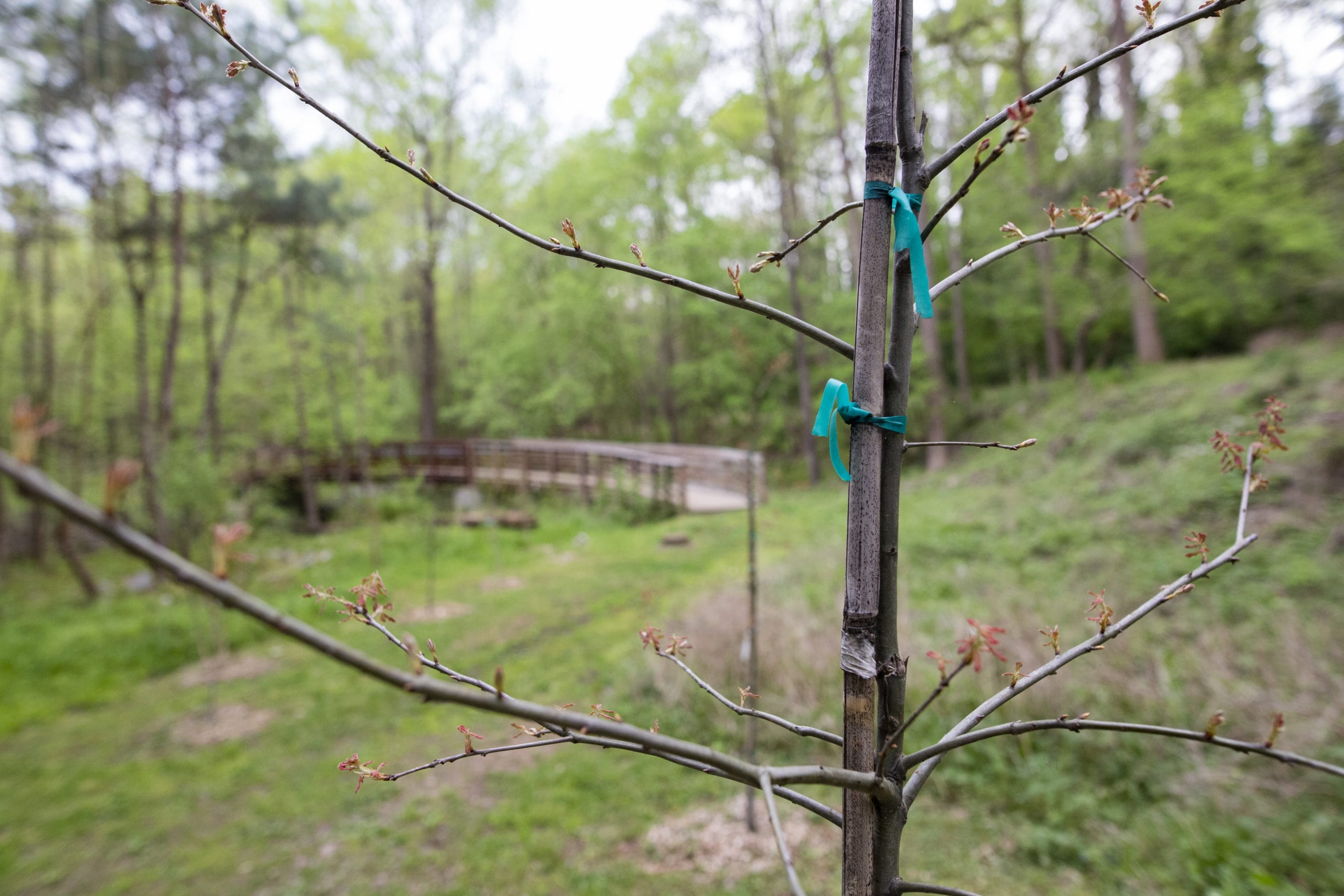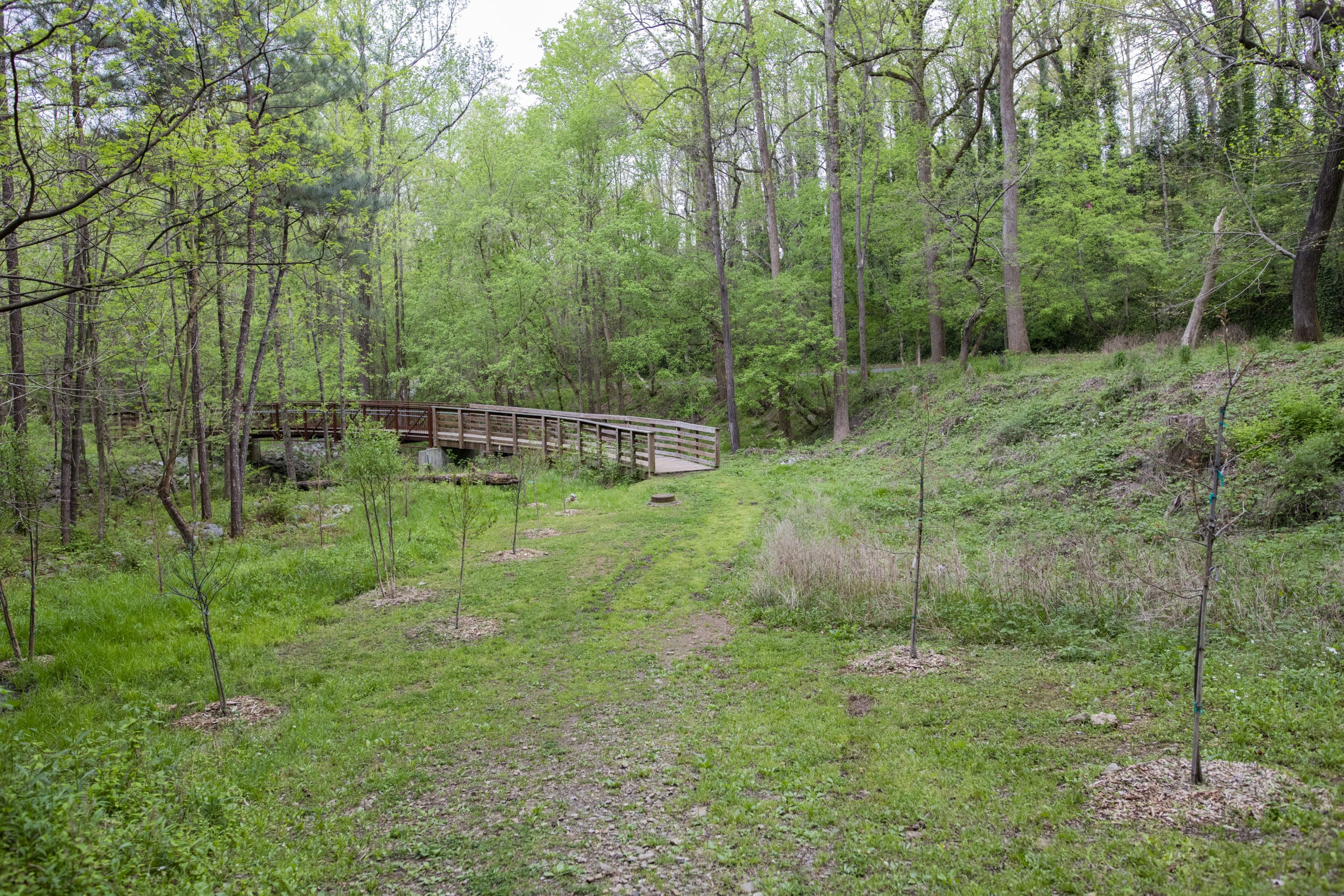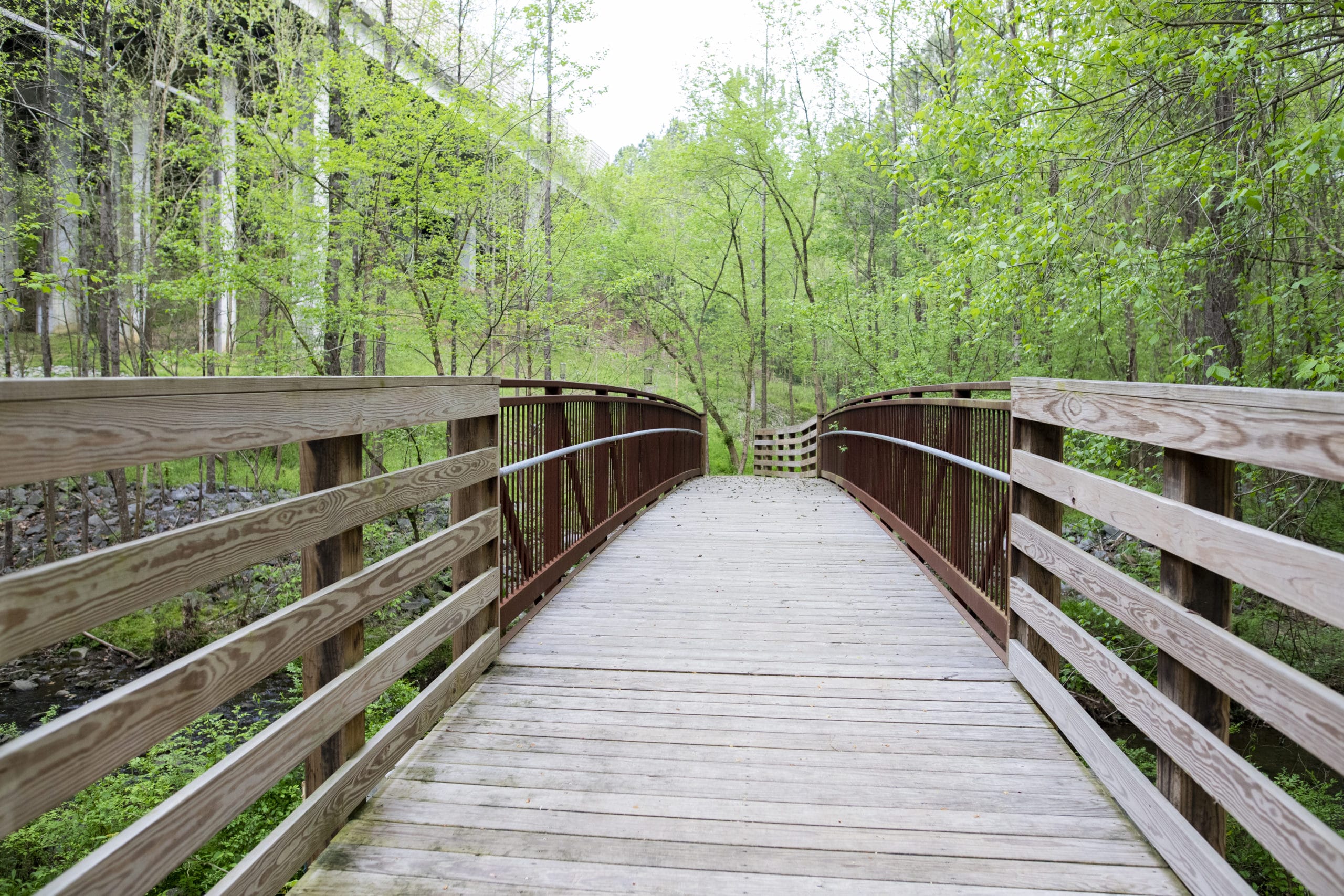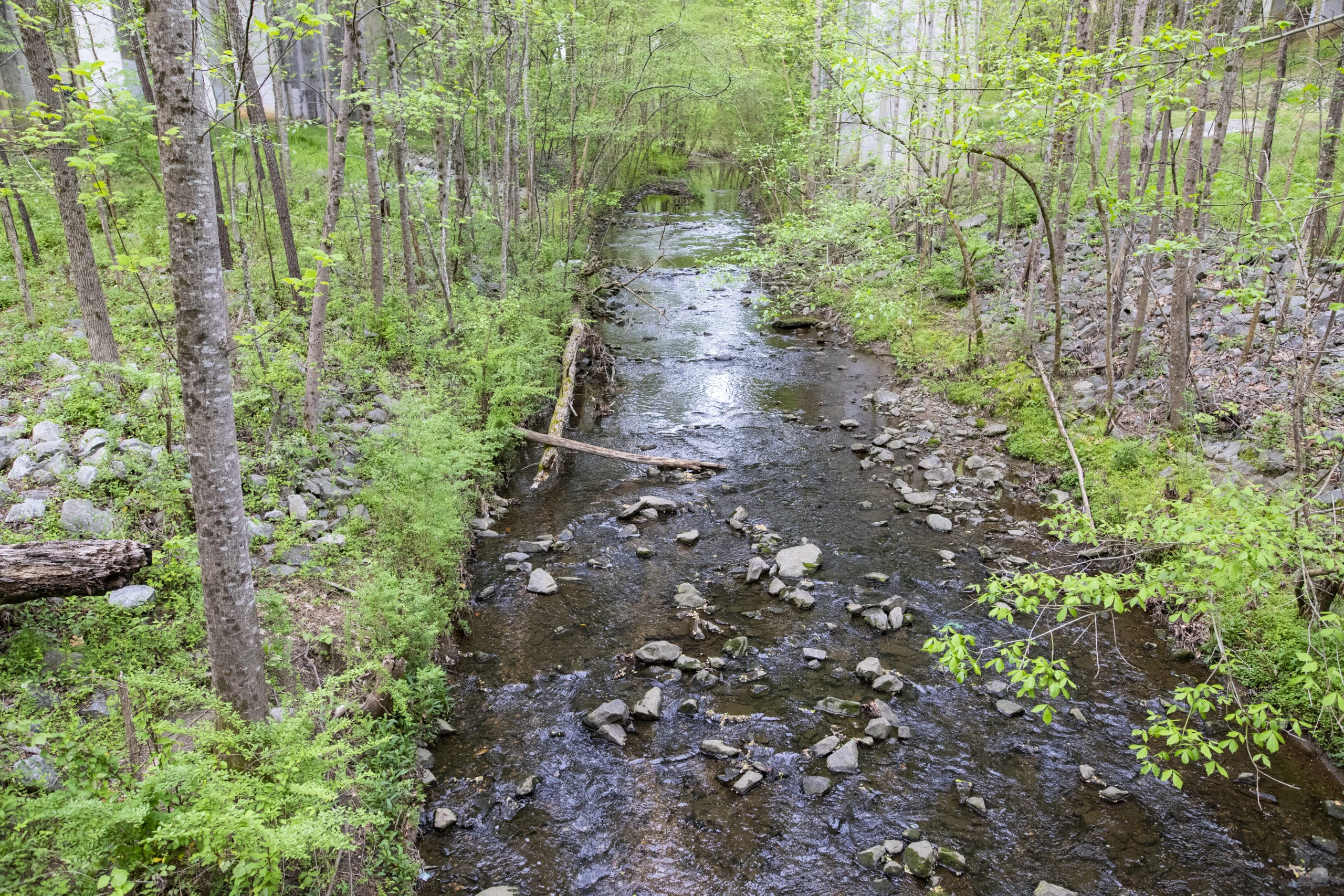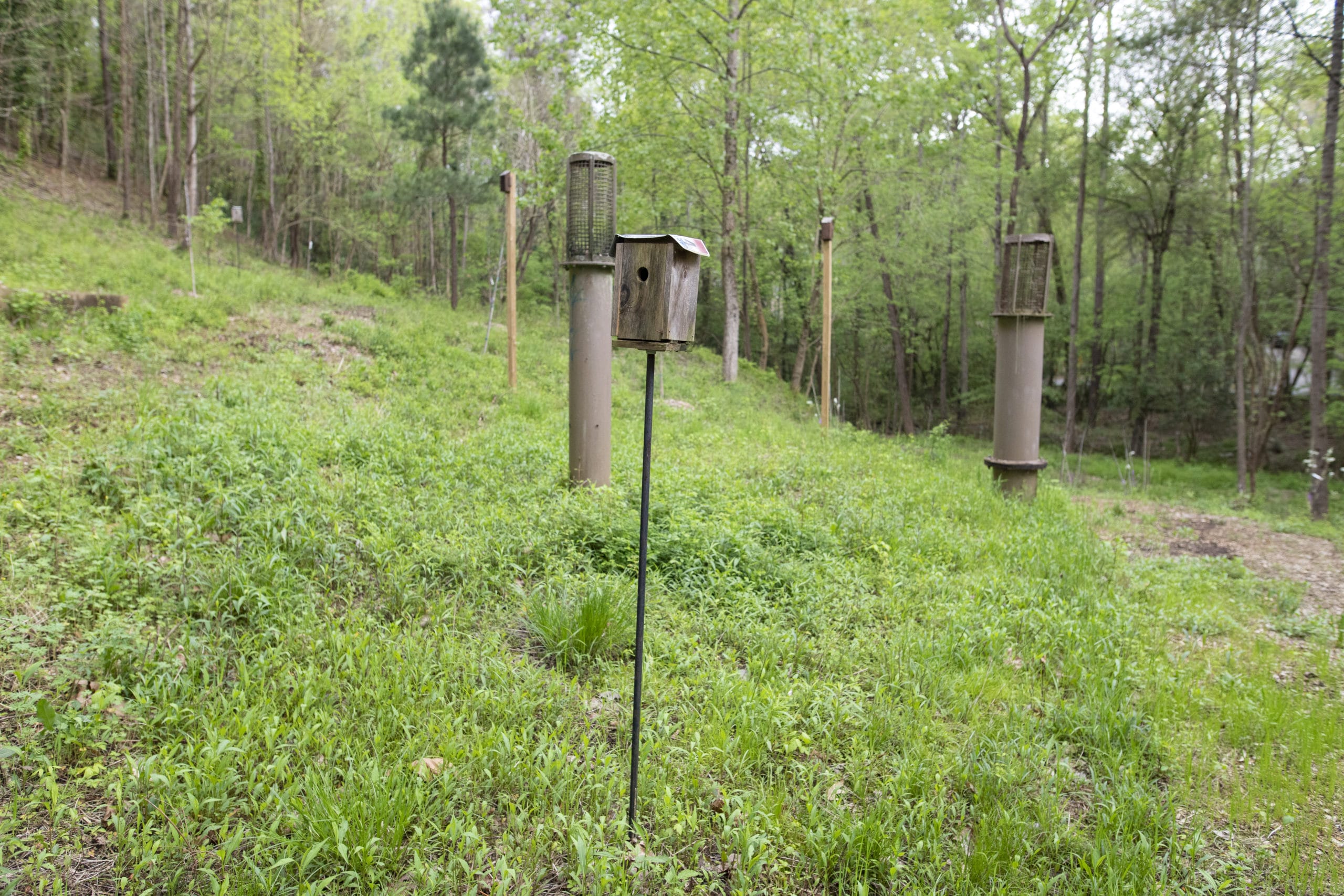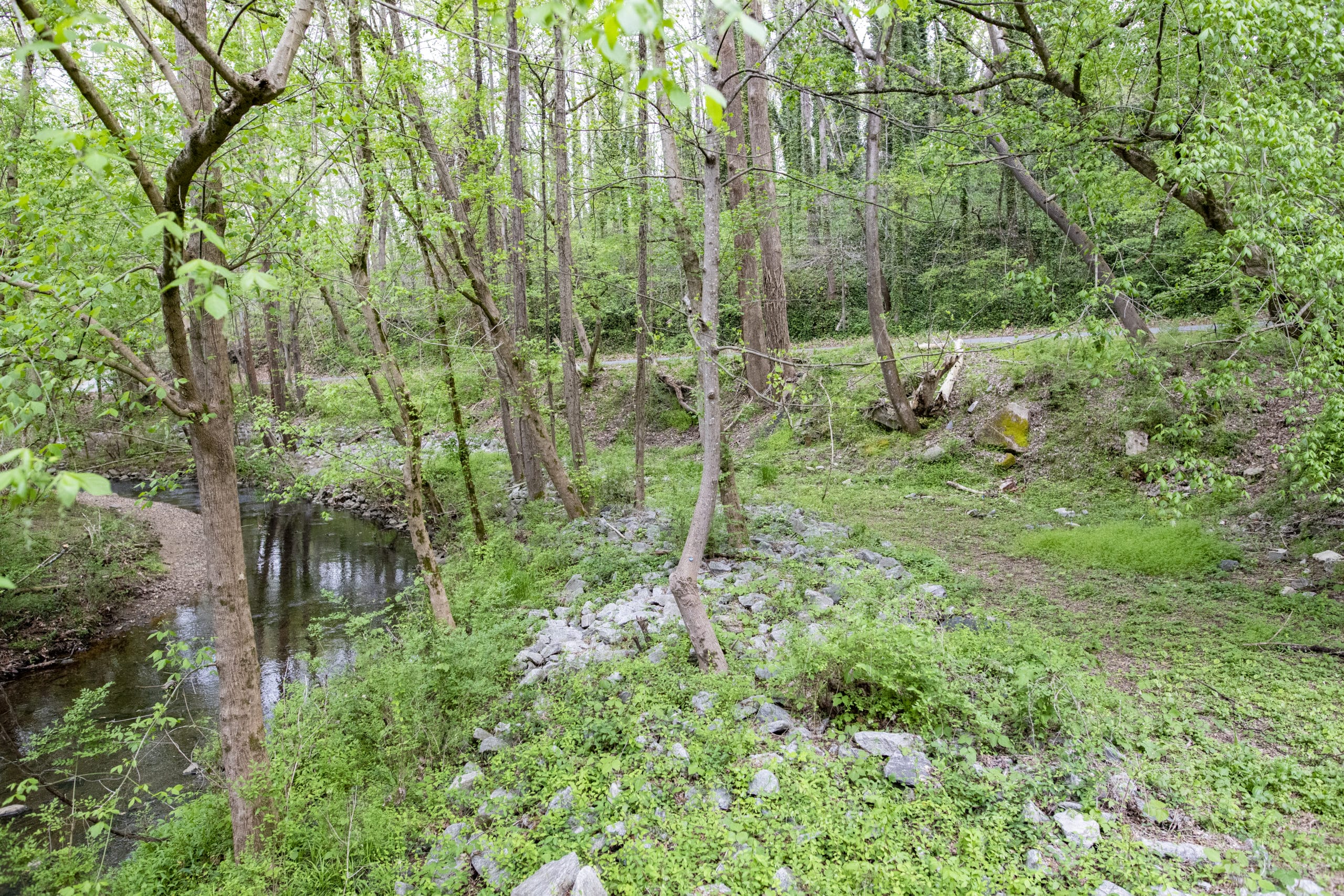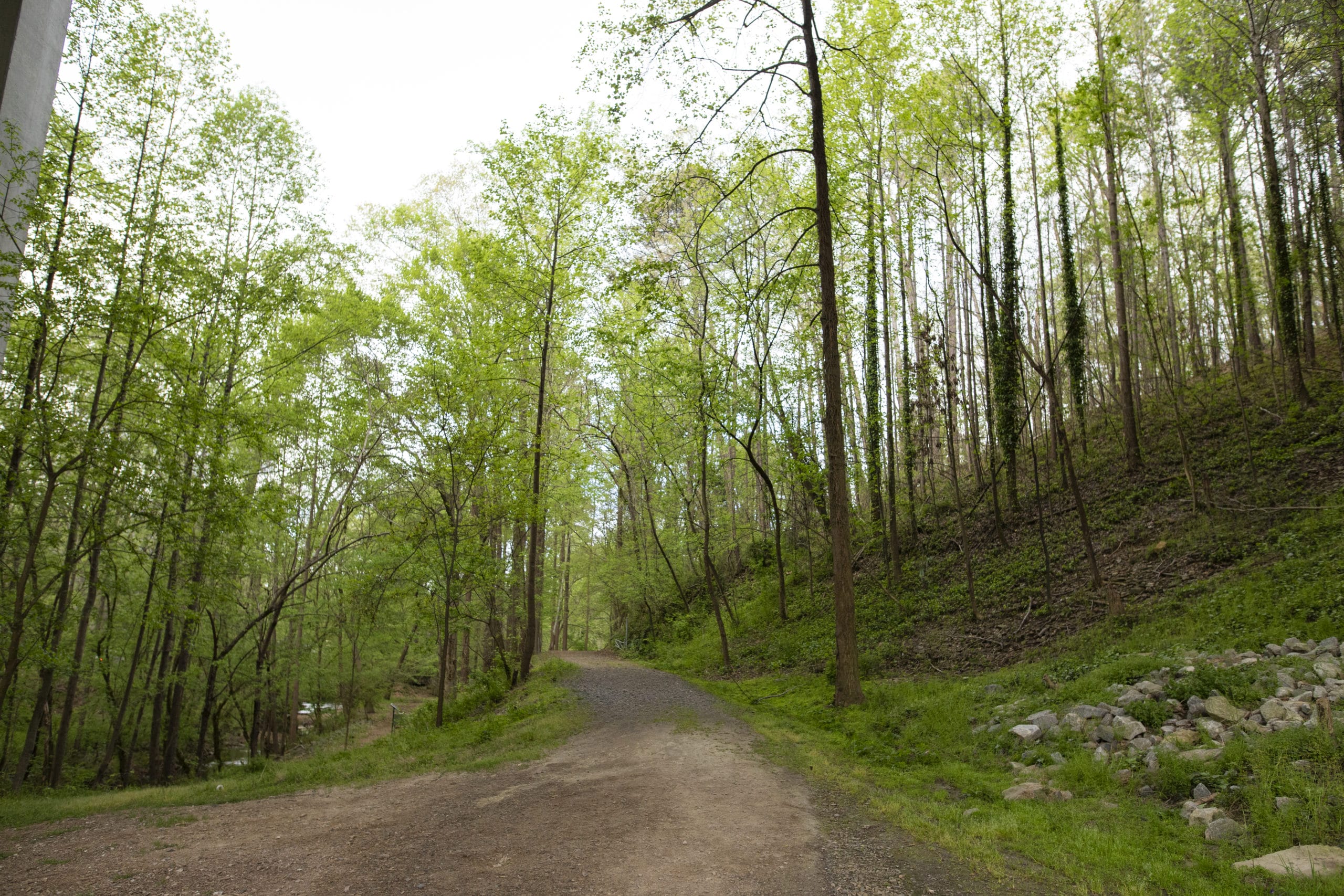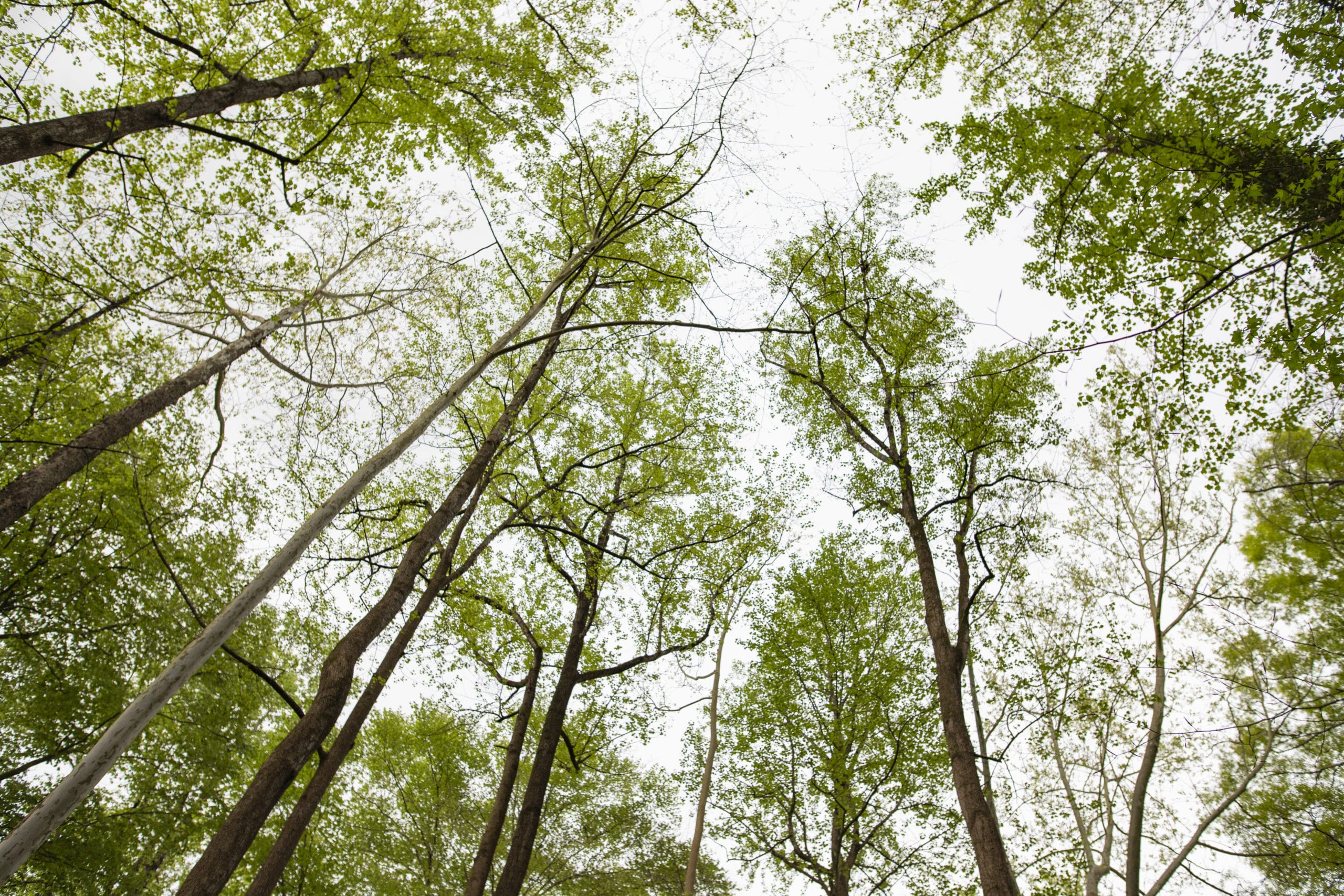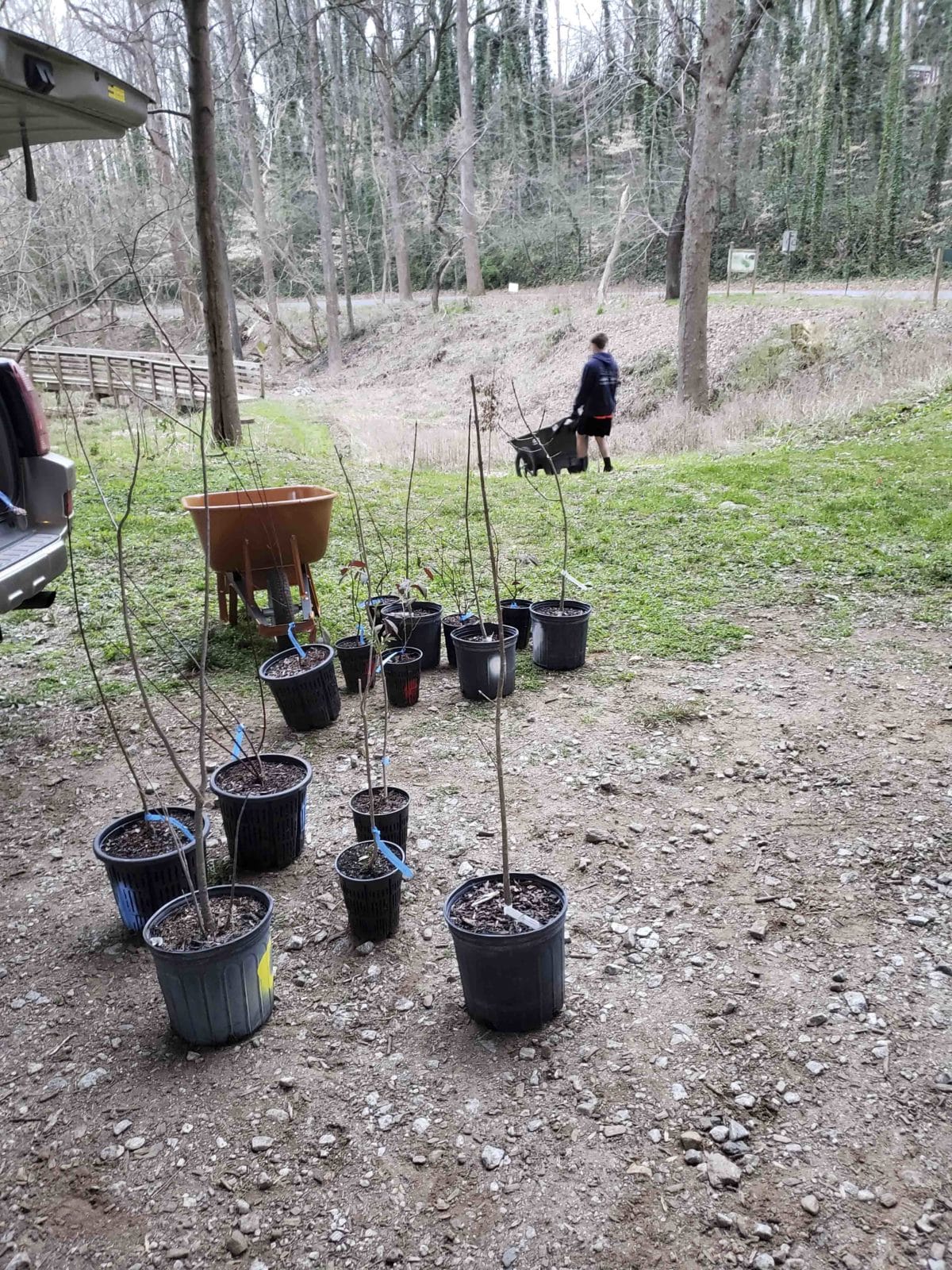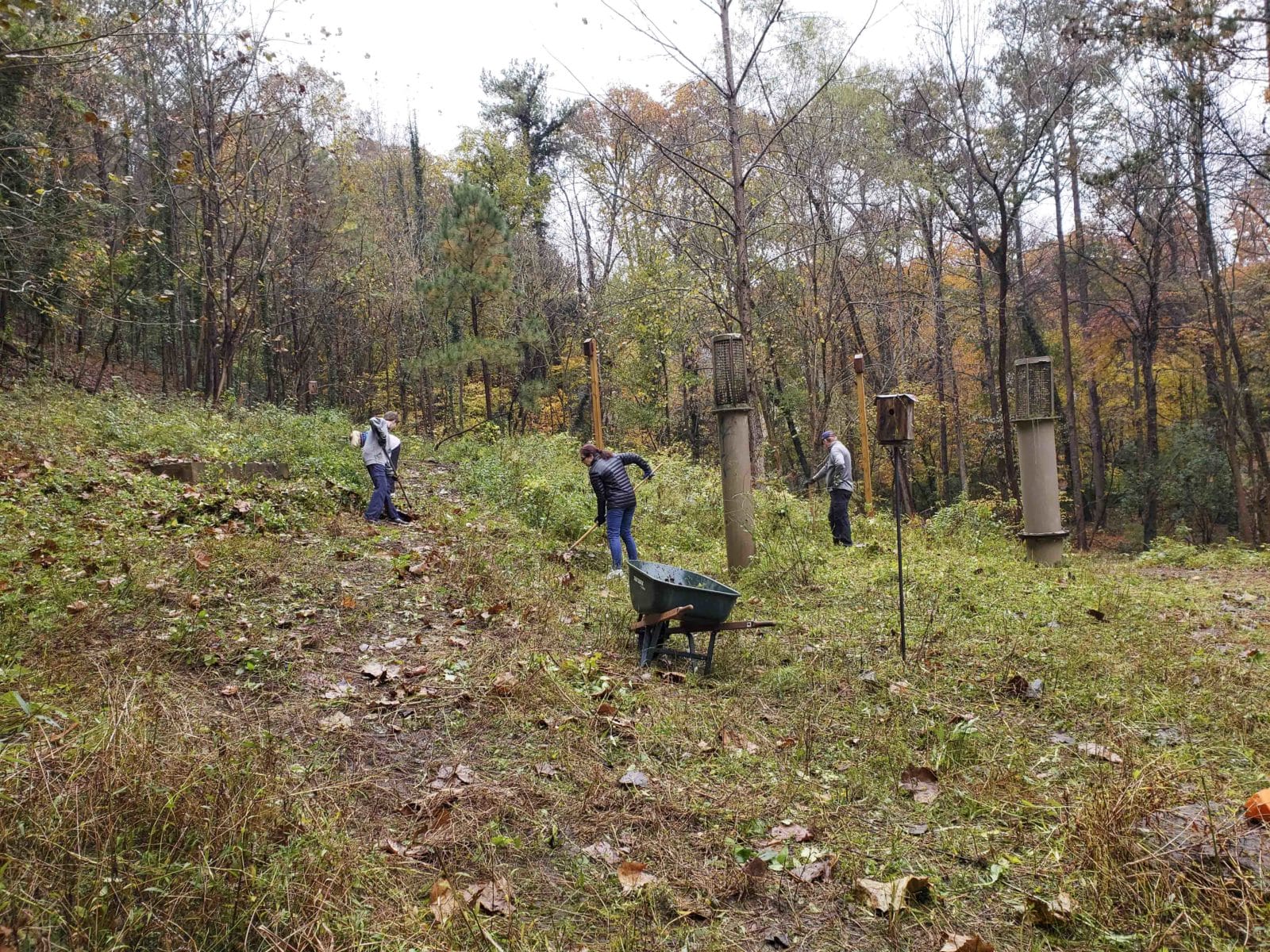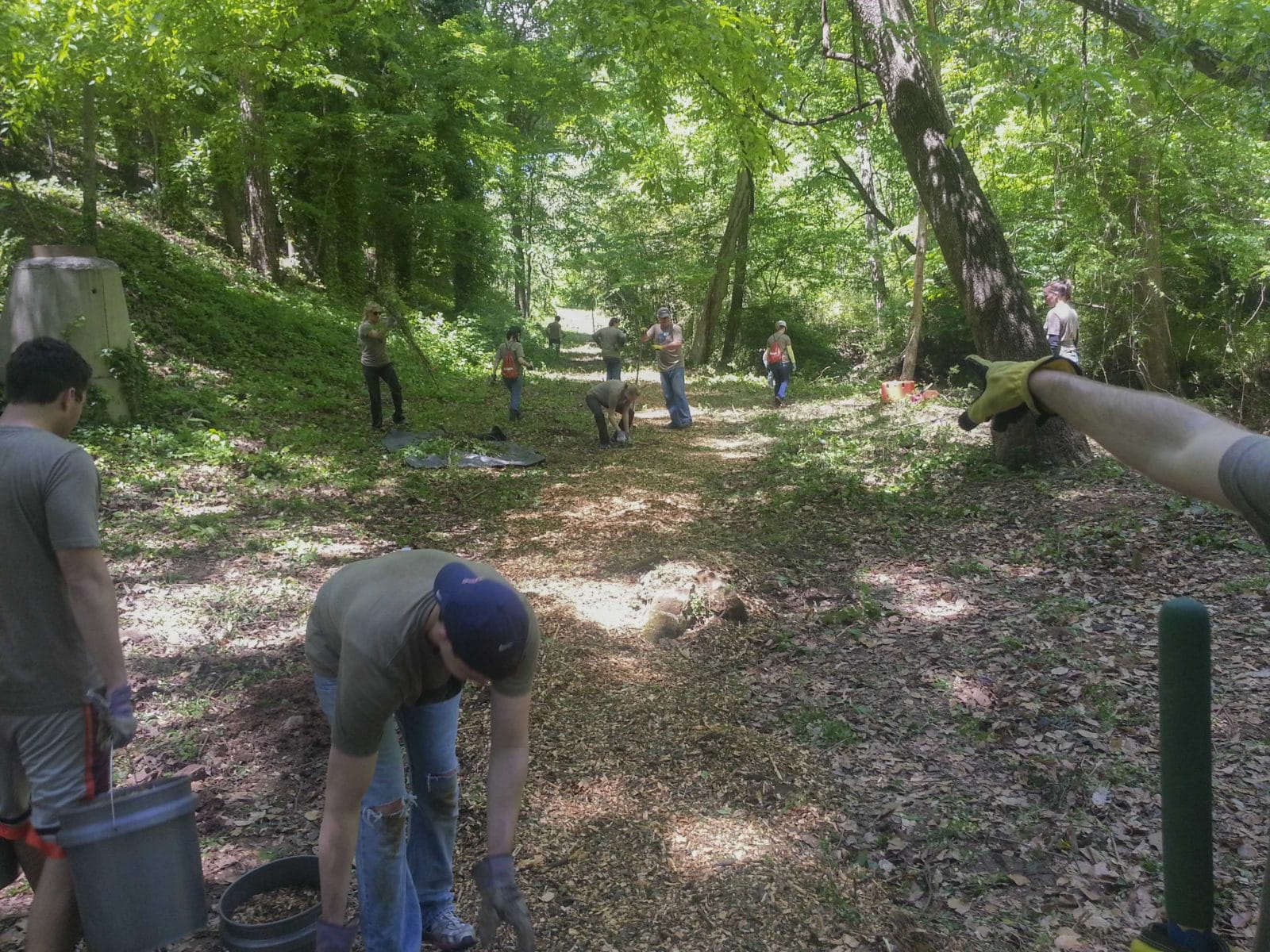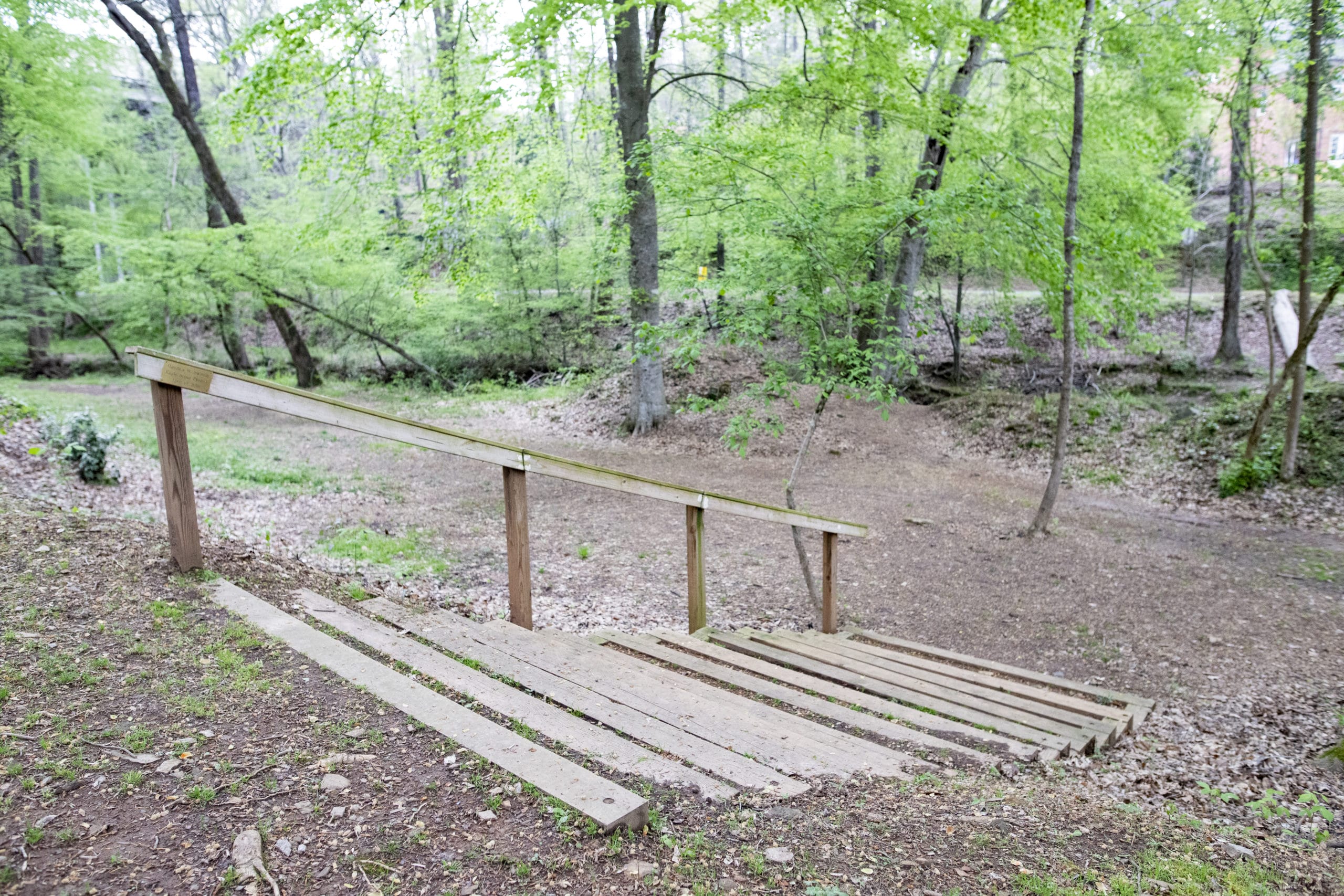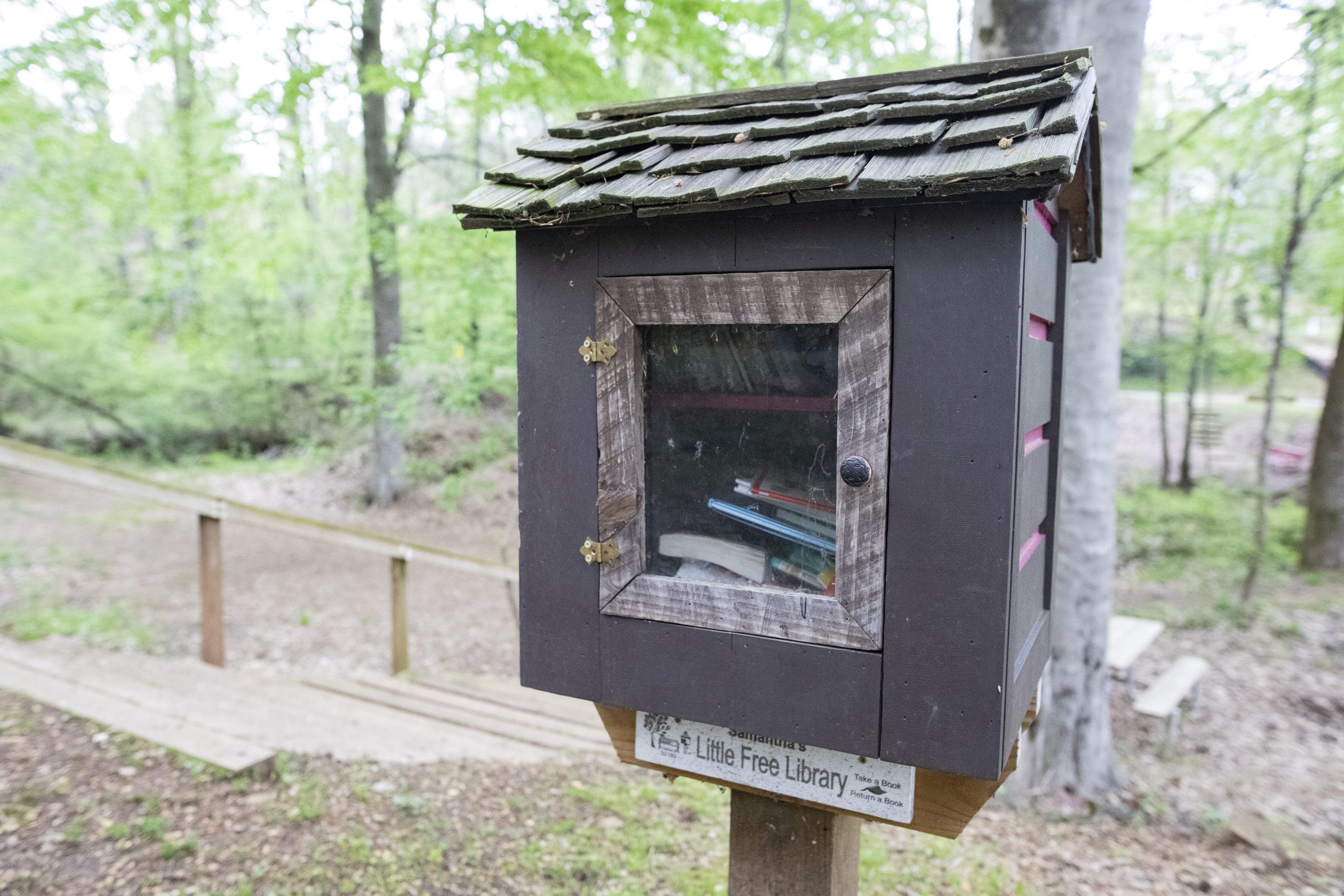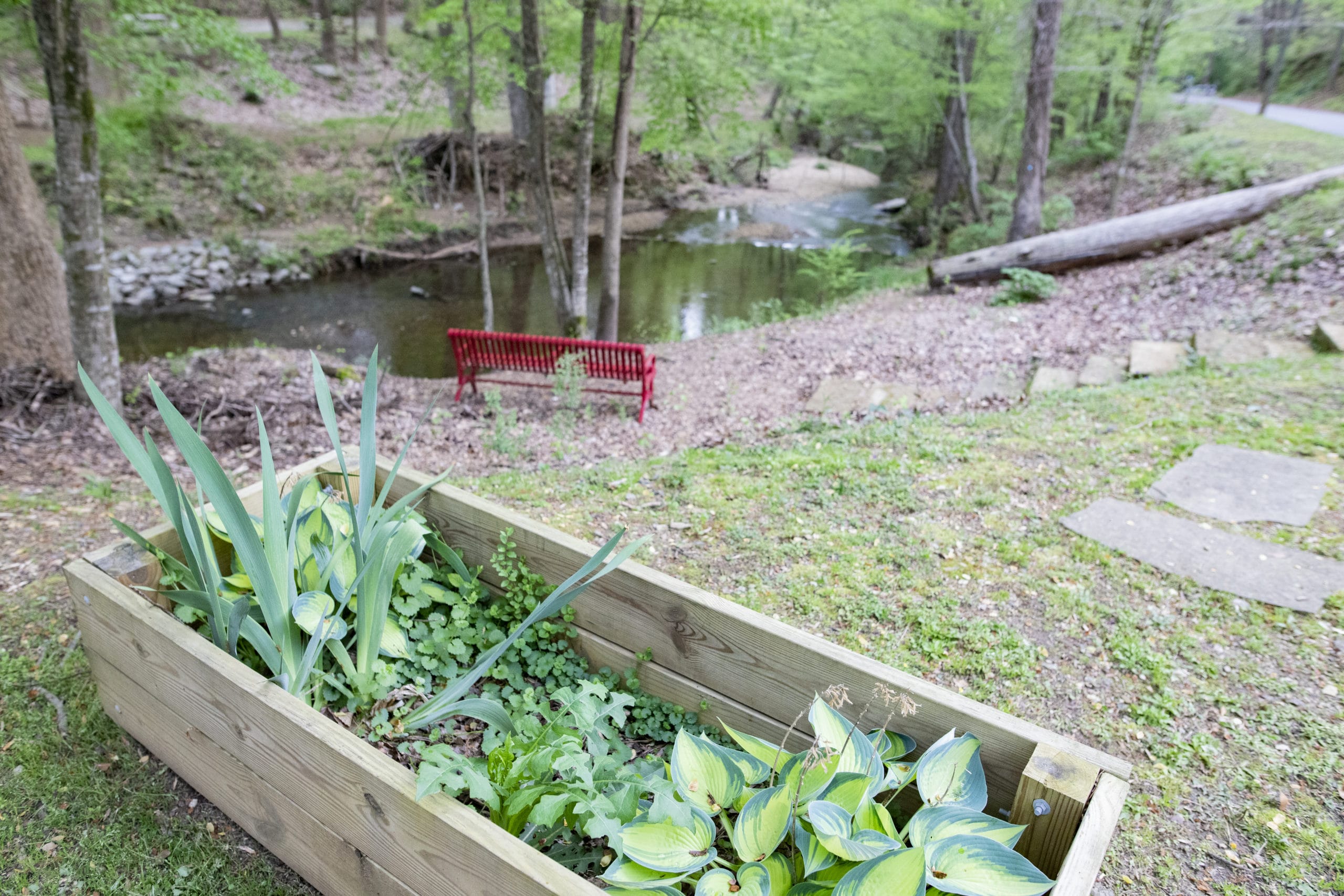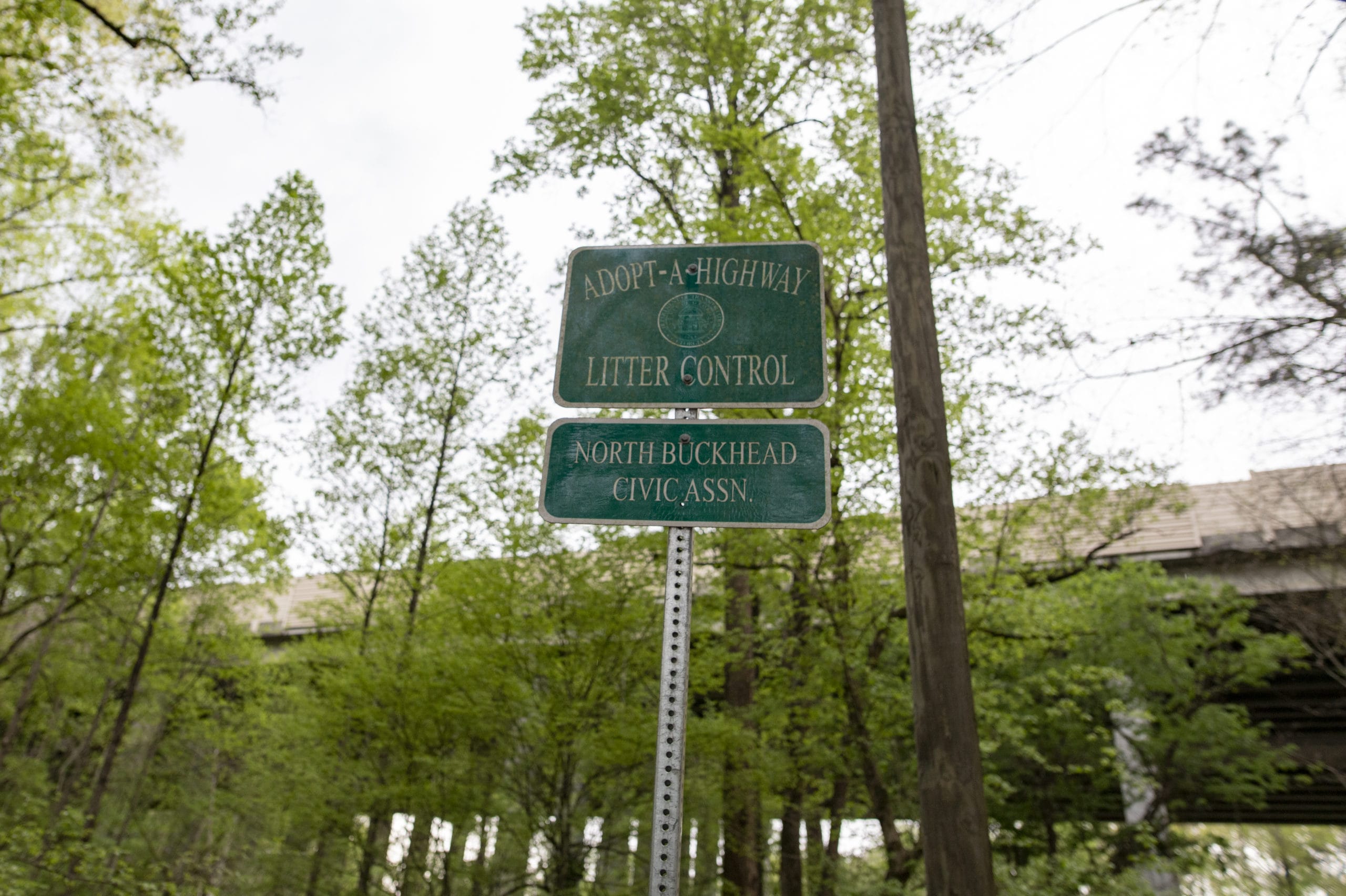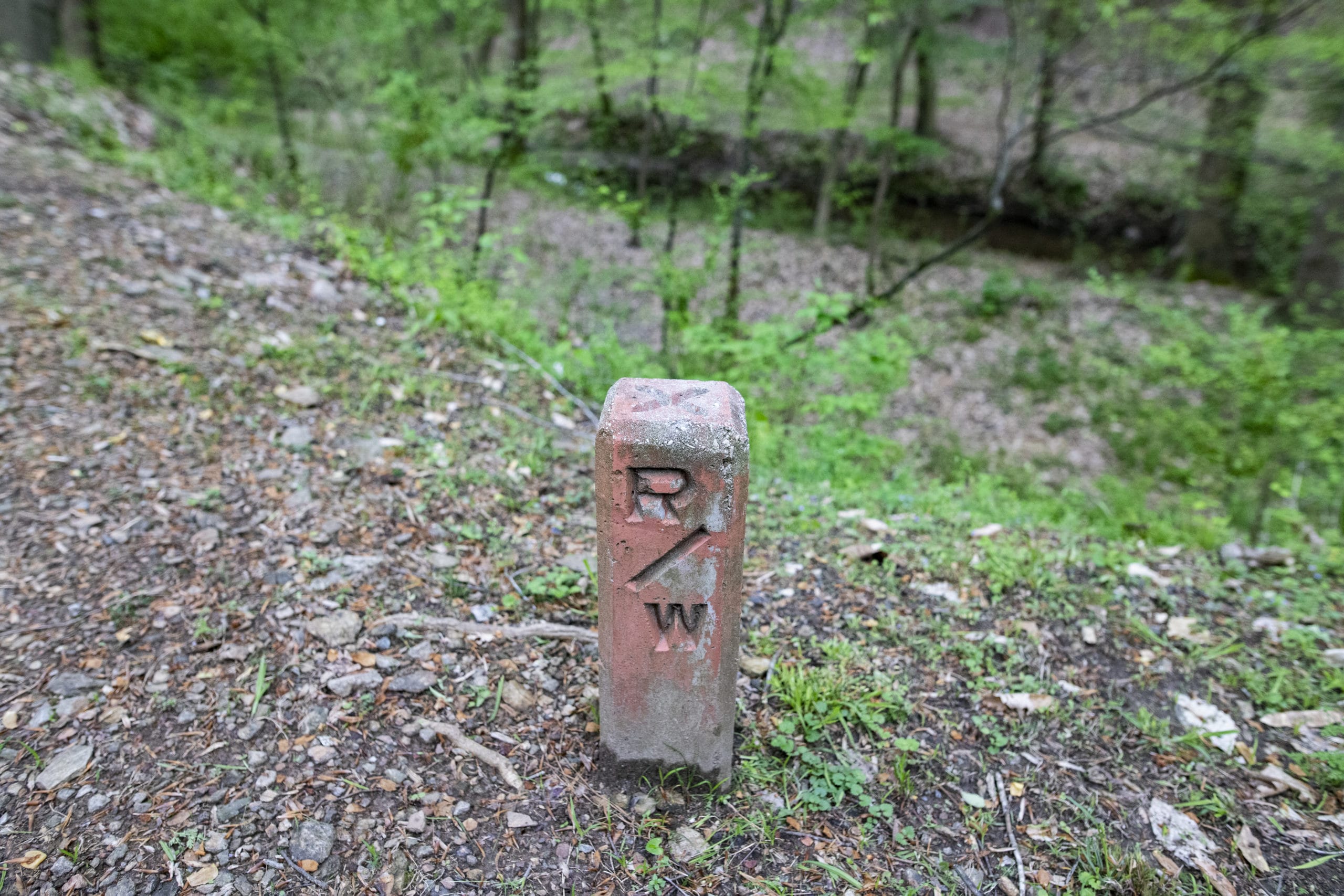Under a grey sky, clouds swollen with rain, I found myself in a creekside park looking up at the underside of GA-400. Cars zoom overhead, punctuated occasionally by the rumble of a semi as it crossed over the cement overpass that spans Little Nancy Creek and Mountain Way Park. The stark contrast of the monumental structure against the wildness of the park’s meandering trails provides a compelling juxtaposition. Little Nancy Creek is a perennial waterway originating from Nancy Creek and winds through the North Buckhead neighborhood, splitting off to meet the Brookhaven Country Club Lake to the east and ending just beyond Peachtree Dunwoody Road in the south.
A number of young saplings are planted beside the path which leads to a footbridge that crosses the creek. Birdhouses on posts dot the landscape between tall, hollow cylinders that act as ventilation for the Atlanta Combined Sewage Overflow Nancy Creek Tunnel that runs under the property. A few lovingly cared-for planters are located at the north end of the park and bright red park benches can be found at scenic spots along the creek’s edge. Old growth trees dominate the park’s northern half while the southern portion is populated by younger trees, not yet providing a canopy to the fresh trails underneath.
Mountain Way Common wasn’t always a park. In 1990 when construction of GA-400 and MARTA cut a track through heavily forested neighborhoods in North Buckhead, this site served as a staging ground of construction materials for the roughly 100’ tall overpass overhead. Later, the city of Atlanta used the area as an access point for the sewage system that was run under the property and is the reason for those tall cylindrical vents. The land was not tended by the City and became a harsh tangle of invasive species that were so overgrown the area was inaccessible. Everything changed when a jogger was violently attacked by someone hiding in the bush, a shocking act that prompted the community to bind together and take measures to clean up the park.
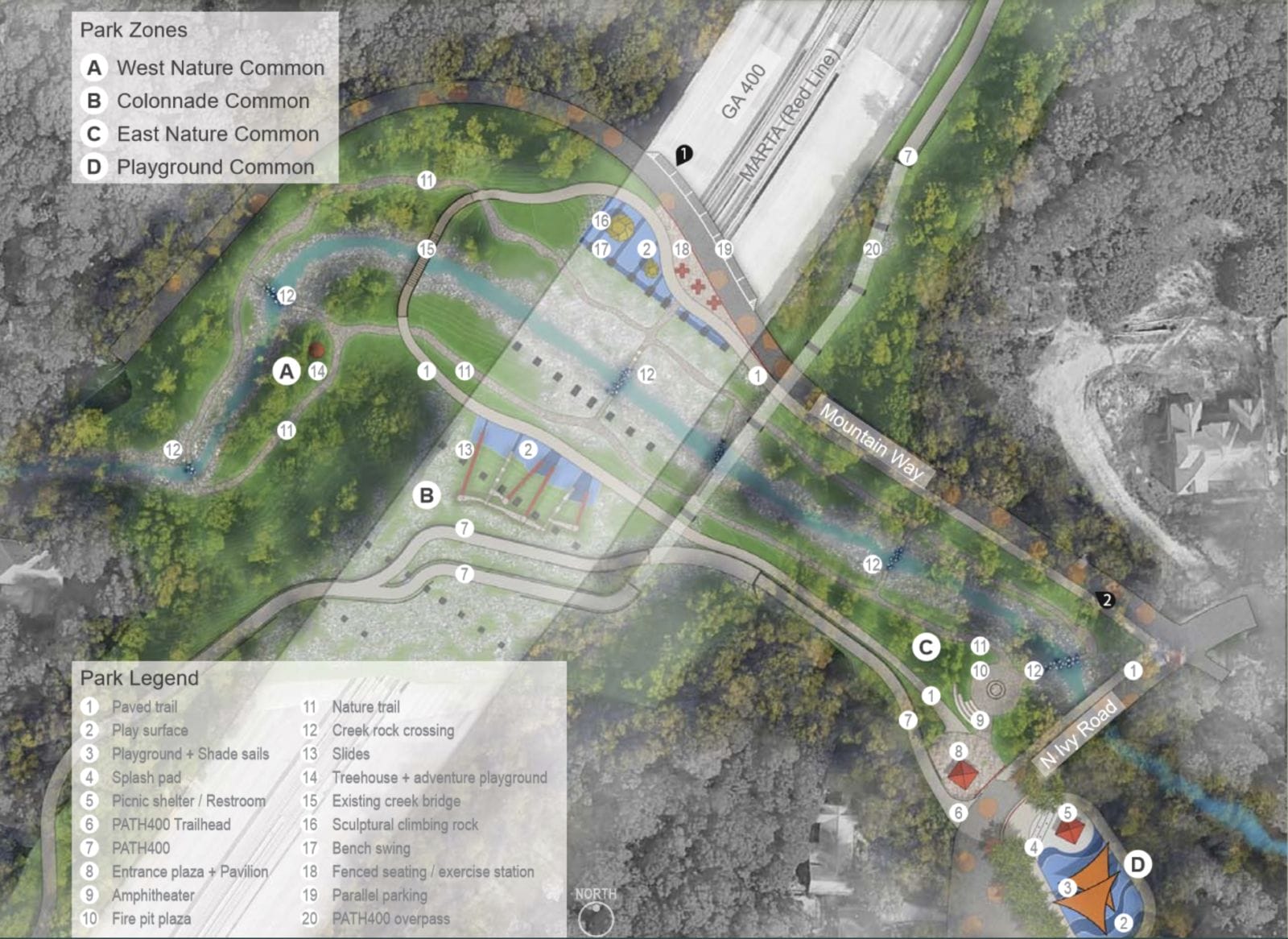
Grassroots efforts to consolidate land began in 2008, and since then the park has earned a Legacy Grant from Park Pride, a Kendala Fund Grant, and Waterfall Foundation Grant. The master plan includes paved trails, splashpad, playground, treehouse, climbing rock, swing, picnic shelter, fire pit, amphitheater, restrooms, and Path400 trailhead. Most recently the park was awarded a Trees Atlanta Neighborwoods Grant and National Environmental Education Foundation Grant to plant the Hornaday Forest thanks to the efforts of one dedicated young man, Matthew Keagle.
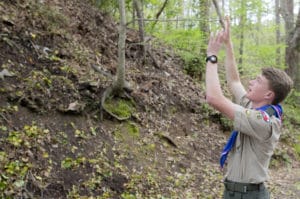
Keagle is a high school junior at Holy Innocents’ Episcopal School and an Eagle Scout with Troop 370. He has been in the Scouts since he was in 2nd grade when he joined the Cub Scouts, and has dedicated 1300 hours of service to tending Mountain Way Common. Of those, 300 hours were personal and the other 1000 were completed as part of his Eagle Project and Hornaday Initiatives. Keagle first volunteered at the park during a workday when he was only 8 years old. In 8th grade he led his first cleanup effort there with about 50 Georgia Tech fraternity brothers, a team of neighbors, and Boy Scouts.
“It was interesting leading with that age gap when I was really young,” said Keagle, who had help from Park Pride in coordinating the effort. “I think that workday really taught me a lot about leadership more than anything else just because it really forced me to get out of my comfort zone.”
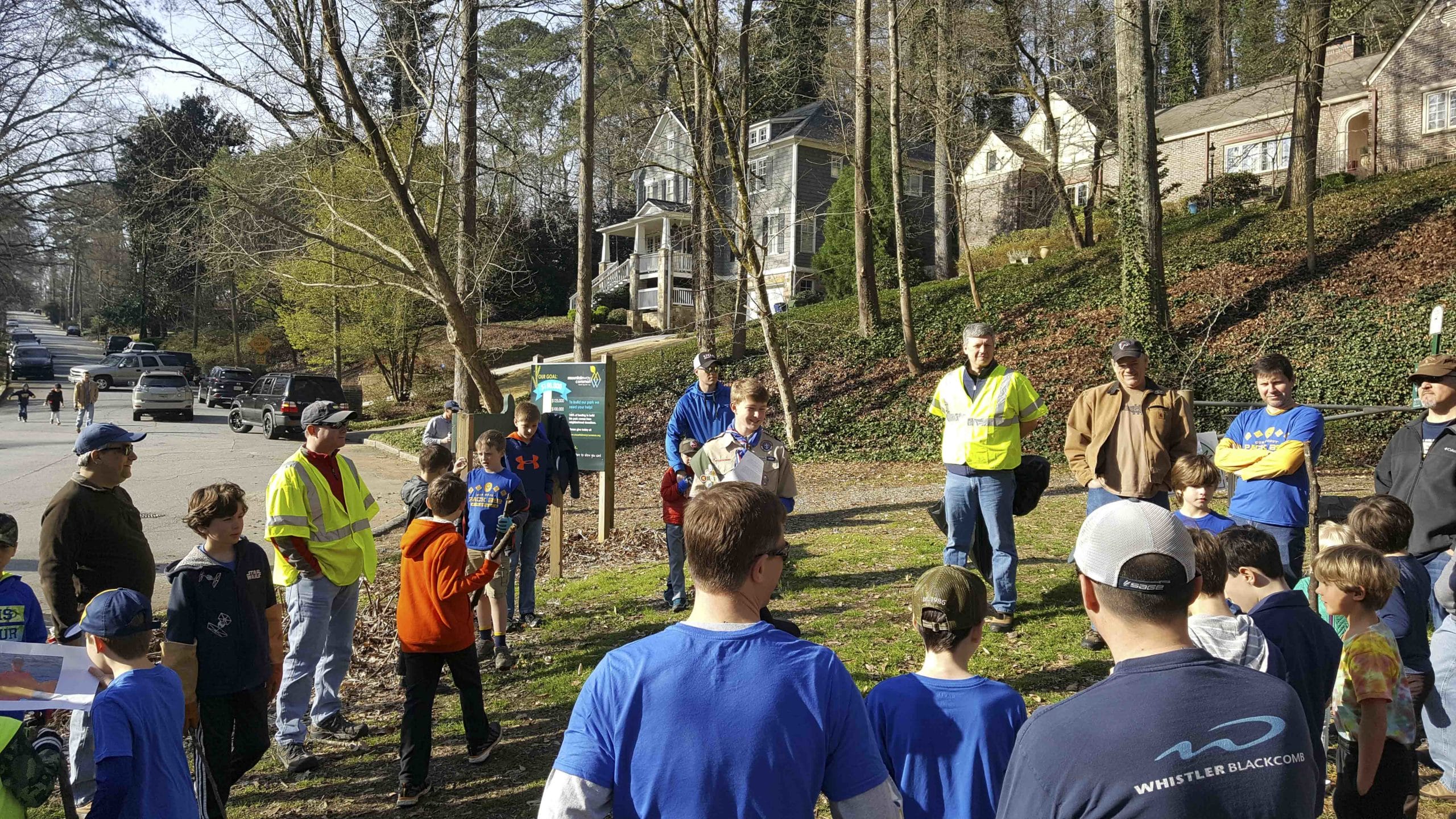
He has partnered with a number of local organizations including Livable Buckhead, Trees Atlanta who provided $9000 towards new saplings for the site in 2018, renting tools and gear from Atlanta Community Toolbank, and collecting samples for water testing with Georgia Adopt-A-Stream. “I got certified in chemical monitoring and bacterial monitoring,” he said, explaining his theory about why the creek’s E.coli levels are elevated in the summer, “what I think is the culprit for that is probably Canadian geese and golf course fertilizers. That’s been a pretty cool thing to figure out.”
No Substitute For Hard Work
The work itself is strenuous, tedious, and challenging especially during bad weather and warmer months when the bugs return in full force. The area was once packed full of invasive species of plants that are difficult to remove without chemicals that could pollute the waters of Little Nancy Creek.
“My least favorite thing was probably dealing with the invasive species. It’s really important to deal with them because they will just spread like crazy, so you have to pull them. The annoying thing is they will grow back very soon after you’ve pulled them and you’re just thinking, how does this happen? But the whole reason why they are invasive is because they can survive a lot of different things, privet especially. You have to pull privet by the roots and you have to keep on pulling it over and over and over again, and eventually it just gets weakened enough. That’s the most difficult thing.”
Keagle was initially inspired to work at Mountain Way Common because of his appreciation for playing outdoors, and when he was a child his home was just down the street from the park. He saw the property as a sort of blank slate where his Scouts work could really make a significant difference. Since the park has been restored wildlife has gradually returned to the area, and Keagle says he has seen turtles, snakes, frogs, blue herons, and even a spot along one trail where a deer slept for a period of time. Neighbors in one of the most greenspace-deprived sections of Buckhead frequent the park’s benches, trails, and a Little Free Library at the Ivy Road entrance.
While Keagle isn’t sure what his plans are after he graduates from high school next year, he says he hopes to incorporate environmental science into his life either as a minor or through ongoing volunteer effort.
“It is really rewarding when you look back and realize, man I really changed this area. That’s what I like about it, I’m going to try to keep doing that in the future.”

